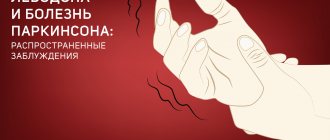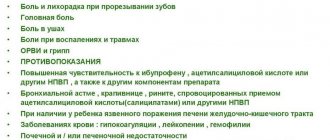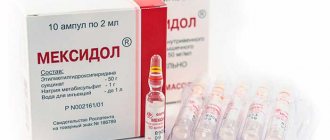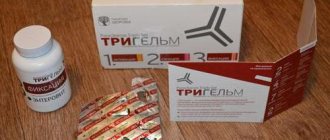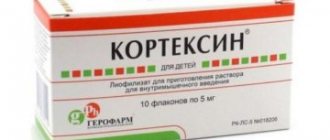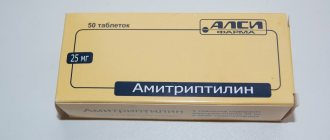Risperidone is a drug that helps normalize the general mental state of the body.
Its use ensures restoration of the central nervous system, relieves depression, hallucinations, stress and other unpleasant symptoms of neurological and mental disorders.
The medicine is produced in the form of round tablets, which are film-coated and placed in blister-type packaging of 10 pieces. The outline packaging is placed in a cardboard box. One pack may contain 1, 2, 3, 5, 6, 10 contour packs.
Components:
- active element - risperidone;
- additional components - povidone, starch, calcium hydrogen phosphate dihydrate, magnesium stearate, cellulose, as excipients.
Pharmacological properties
Risperidone is an atypical antipsychotic that has anxiolytic effects.
Belongs to the group of antipsychotic drugs. The active substance of the drug causes selective blocking of serotonin 5-HT2 and dopamine D2 receptors. It also binds to alpha1 and alpha2 adrenergic receptors. Does not affect cholinergic receptors.
Despite the fact that the main component of the drug causes blocking of D2 receptors, it does not have a depressing effect on motor activity compared to other antipsychotics and causes a state of catalepsy to the least extent.
The antipsychotic effect is associated with blocking D2 receptors, the sedative effect is associated with blocking adrenergic receptors in the brain stem of the head, and the antiemetic effect is associated with blocking D2 receptors responsible for the vomiting center.
As a result of the use of the drug, hallucinations, automatism, states of aggressiveness, and delirium are eliminated. Depending on the dosage, it may cause an increase in prolactin levels in the blood.
Drug interactions
With the simultaneous use of inducers of microsomal liver enzymes, a decrease in the concentration of risperidone in the blood plasma is possible.
When used simultaneously with phenothiazine derivatives, tricyclic antidepressants and beta-blockers, the concentration of risperidone in the blood plasma may increase [14].
When used simultaneously with carbamazepine, the concentration of risperidone in the blood plasma is significantly reduced.
When used concomitantly, risperidone reduces the effects of levodopa and other dopamine receptor agonists[14]. Potentiates the effect of neuroleptics[6].
When used simultaneously with fluoxetine, an increase in the concentration of risperidone in the blood plasma is possible.
Pharmacokinetics of the drug
The drug has rapid and complete absorption.
Eating food does not affect the degree of absorption. The maximum concentration level can be determined 60 minutes after taking the medicine. The medication is distributed throughout the body, the main part of it penetrates the central nervous system, the level of concentration in the body is directly proportional to the dosage. Almost 90% binds to proteins. The half-life is approximately 3 hours. Approximately 14% of the drug is excreted through the intestines, and almost 70% is excreted through the kidneys.
Medicinal properties
The tablet is absorbed in the intestine after oral administration. About 70% of the taken dose of the drug enters the blood, where it binds to proteins. It is believed that the bioavailability of Risperidon Organica is slightly lower than that of Risperidon Canon. Drug molecules pass well through the blood-brain barrier to the central nervous system. Here they bind to varying degrees with the following groups of receptors:
- 5-HT2 serotonic
- D2-dopaminergic
- Alpha1-adrenergic receptors
- H1-histamine.
Thanks to this, Risperidone has the following clinical effects:
- Effectively suppresses hallucinations
- Reduces the severity of anxiety disorders
- Moderately reduces physical activity
- Calms the patient and provides sedation.
Its maximum concentration in the blood is observed 1 hour after administration. The drug is metabolized by the cytochrome system of the liver. It is excreted from the body in two ways: through the kidneys (most of the medicine) and the intestines. In case of renal failure, its accumulation in the body is observed.
Release forms
Packaging price – 430-500 rubles.
"Risperidone Canon" is produced in white packaging with gray and purple inserts in dosages of 1, 2 and 4 mg. The package contains 2 blisters of 10 white, odorless tablets.
"Risperidone Organica" is available in white and green packaging in dosages of 2 and 4 mg. Each package contains 2 blisters of 10 odorless white tablets.
The tablets are intended for oral administration only.
In what situations is the medicine prescribed?
Risperidone is taken for the following indications:
- a condition of dementia that arose against the background of Alzheimer's disease;
- in case of bipolar type disorder;
- during the development of hallucinations that arise due to organic disorders in the brain;
- delusional schizophrenia-like disorder, which occurs due to organic disorders in the brain;
- during all types of schizophrenia, as well as hebephrenia;
- delusional and schizophrenic disorders with a chronic nature;
- psychoses with an inorganic nature of unspecified etiology;
- manic episodes;
- regular episodes of depressive disorders;
- obsessive-compulsive disorders;
- hallucinations of unspecified nature;
- sudden attacks of an aggressive nature;
- symptoms of autism.
Restrictions and contraindications for use
The drug is not recommended for use in the following conditions:
- during severe liver and kidney disorders;
- hypersensitivity or intolerance to the constituent components of the drug;
- lactation;
- for Parkinson's disease;
- during prostate adenoma;
- if you have glaucoma;
- age up to 15 years.
The medicine is used with caution for the following disorders and conditions:
- if there is a brain tumor;
- for chronic heart failure;
- if there is prolongation of the QT interval;
- with myocardial infarction;
- when seizures occur;
- during myocardial infarction;
- if there are convulsions;
- during dehydration;
- pregnant women;
- during intestinal obstruction.
How to take medicine safely and effectively
The drug is taken orally. Adults and children over 15 years of age should take the medication twice a day. You should start taking it with 2 mg per day with a further transition to 4-6 mg. Elderly patients should take 0.5 mg twice a day.
During manias that are accompanied by bipolar disorder, you need to take 2 mg per day, after a day the dose is increased by 2 mg and then increased by 4-6 mg per day.
During dementia, which is accompanied by behavioral disorders, you need to take 0.25 mg of the drug 2 times a day. Subsequently, the dose is increased by 0.25 mg to 0.5 mg per day or 1 mg 2 times a day.
Use during pregnancy and lactation
During pregnancy, the drug can only be prescribed by a doctor and in case of urgent need, only in cases where the expected benefit for the mother is higher than the expected risk for the child.
Since the components of the drug pass into breast milk, it is best to stop breastfeeding during the treatment period.
Instructions for use of Risperidone
Risperidone tablets are a drug that belongs to the pharmacological group of antipsychotics. Both Risperidone INN (International Nonproprietary Name) and its trade name are called the same. The drug is often included in the therapeutic process when identifying various pathologies of nervous activity. To get positive results, avoid side effects and worsen the patient’s condition, you must use the product strictly according to the instructions.
Related articles Tablets rispolept instructions Medicine nicergoline Antibiotic vilprafen
Composition and release form
You can buy antipsychotic tablets in pharmacies. Each pill is white, film-coated and biconvex. The drug is produced in blister packs (10 pieces each), the pack contains 2 plates (20 tablets). The composition of the medicine is as follows:
| Release form | Components, for 1 pc. |
| Pills | Active substance – risperidone (2 or 4 mg) Additional:
|
Pharmacodynamics and pharmacokinetics
The active ingredient of the drug will have a neuroleptic effect. Risperidone is classified as a dopaminergic, serotonergic drug; it can block alpha-adrenergic receptors at CNS synapses. Another medicine can induce an increase in the concentration of prolactin in the human body. Considering these functions, the medication has the following effects:
- Antiemetic effect – blockade of dopamine d2 receptors of the vomiting center (the severity of nausea decreases, the frequency of vomiting decreases).
- Anxiolytic, anticholinergic, sedative effect - blockade of adrenergic receptors of the reticular formation of the brain stem.
- Decrease in temperature (hypothermic effect - blockade of dopamine receptors in the hypothalamus).
- Antipsychotic function (reduction in the intensity of symptoms of acute psychosis, which is manifested by high motor activity, auditory/visual hallucinations, overexcitation).
- Compared to drugs with similar effects, Risperidone inhibits motor function less and induces catalepsy (maintaining posture) less.
After oral administration of the antipsychotic, risperidone is rapidly and almost completely absorbed into the blood. The substance seeps into the brain through the blood-brain barrier and is evenly distributed throughout the tissues of the body. Metabolism occurs in the liver, this occurs with the participation of cytochrome P450 enzymes to inactive metabolites. The latter are excreted from the body with feces (15%) and urine (70%). The period for the systems to remove half the dose taken is approximately 20 hours.
Indications for use
The instructions for use indicate a number of diseases and conditions that are treated with Risperidone tablets. This:
- acute and chronic schizophrenia, psychotic states with productive symptoms;
- behavioral disorders in adults and adolescent children with a reduced level of intelligence (when the main symptoms are impulsivity, aggressiveness, self-aggression);
- unstable emotional reactions in mental pathologies;
- mood correction during the treatment of mania;
- behavioral disorder in patients with dementia (anger, aggressiveness, delirium, physical violence, agitation).
The drug can be dangerous: overdose and side effects
When taking the drug in dosages higher than recommended, symptoms of overdose may appear:
- state of tachycardia;
- increased sedation;
- the occurrence of increased drowsiness;
- hypotension;
- extrapyramidal disorders.
When the above symptoms appear, gastric lavage is performed and the use of sorbents and laxatives is prescribed. If the patient is unconscious, then intubation is prescribed. ECG monitoring is done because arrhythmia is possible.
The following side effects may occur while using Risperidone:
- insomnia, anxiety, agitation, headaches;
- sometimes drowsiness, fatigue, dizziness, problems with concentration may appear;
- problems with visual functions;
- in rare cases, tremor, rigidity, hypersalivation, acute dystonia may occur;
- sometimes problems with stool may occur;
- various dyspeptic phenomena;
- the occurrence of nausea, vomiting, abdominal pain;
- problems with erection, ejaculation, orgasm;
- in rare cases, reflex tachycardia may appear;
- menstrual irregularities;
- weight gain;
- sometimes there may be a slight decrease in the level of neutrophils and platelets;
- the appearance of rhinitis, rash on the surface of the skin;
- problems with urination.
Possible complications
Common side effects from risperidone may include the following:
- rash;
- hyperprolactinemia;
- weight gain;
- seborrhea;
- constipation;
- diarrhea;
- salivation;
- increased appetite;
- dyspepsia;
- nausea;
- vomit;
- epigastric pain;
- dry mouth;
- akathisia;
- dizziness;
- dyspnea;
- asthenia;
- urinary incontinence;
- arthralgia;
- muscle pain;
- nose bleed;
- drowsiness;
- night sleep disturbances;
- dose-dependent extrapyramidal side effects such as dystonia, tremor and parkinsonism;
- blurred vision;
- anxiety;
- cough;
- nasal congestion;
- nasopharyngitis;
- a sore throat;
- upper respiratory tract infections;
- fatigue;
- generalized pain;
- gynecomastia;
- galactorrhea.
Rare side effects:
- long QT interval on ECG;
- sudden cardiac death;
- fainting;
- diabetic ketoacidosis;
- hypothermia;
- pancreatitis;
- agranulocytosis;
- neutropenia;
- leukopenia;
- thrombocytopenia;
- thrombocytopenic purpura;
- stroke;
- tardive dyskinesia;
- priapism;
- pulmonary embolism;
- neuroleptic malignant syndrome;
- anorexia;
- hypoesthesia;
- impaired concentration;
- sexual dysfunction;
- angioedema;
- intestinal obstruction;
- general swelling;
- hyponatremia.
Special instructions - this is important!
When using the drug, you must pay attention to the following instructions:
- The drug is used with extreme caution by patients with problems with the functioning of the heart and blood vessels, as well as with dehydration, cerebrovascular disorders, and hypovolemia. When taken, the dosage is increased gradually.
- If hypotension occurs, the dosage should be reduced.
- The drug is used with caution to treat patients with Parkinson's disease, because the drug may worsen the patient's condition.
- Should not be used in conjunction with centrally acting medications.
- During the treatment period, it is best not to overeat, because the drug can cause sudden weight gain.
- During treatment, you should refrain from driving a car, as well as from performing work that requires increased attention.
Risperidone Organica - a domestic replacement for foreign analogues
Place of the drug in practice
Reviews from ordinary people and the opinion of modern psychiatrists who prescribe Risperidone to their patients.
Risperidone is a sedative with anxiolytic effects and belongs to the group of antipsychotic drugs. It has a direct effect and quickly relieves various neurological and mental disorders.
You can take the medicine for psychoses, neuroses, stress, depression, and nervous system disorders. Also prescribed for various types of schizophrenia. Improvements are observed already in the first days of use.
The drug has a beneficial effect on the central nervous system and quickly restores it. But be sure to follow the dosage, otherwise unpleasant side effects may occur.
Psychiatrist
A few months ago I began to notice such an unpleasant condition as the appearance of some voices. It seems that I have never suffered from a mental disorder, but now I have such an unpleasant problem. I quickly went to a psychiatrist.
After examination, it turned out that it was due to nervousness, he prescribed me to take Risperidone. I drank it according to the dosage. At first there were problems with vision, and my head hurt a lot, but then it returned to normal and the voices disappeared.
Christina, 35 years old
Frequent nervousness and stress led to a complete breakdown of my nervous system. As a result, I became very irritable, nervous, and constant depression began to arise, and for no reason. As a result, I had to see a psychotherapist.
The doctor examined me and prescribed me to take a strong drug, Risperidone. I took it according to the dosage, but I couldn’t get rid of the side effects.
At first, severe visual disturbances began to occur, headaches, nausea, vomiting, stool disorders, and increased appetite appeared. In 2 months I gained 7 kg. But my nervous condition became much better.
Valentina, 47 years old
